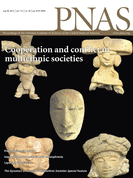 A 2014 Cancer Cell paper became the subject of an erratum in January 2015, shortly after PubPeer members began criticizing the data. However, many issues brought up by commenters weren’t addressed in the correction notice, including a figure that might be two experiments spliced together to look like one.
A 2014 Cancer Cell paper became the subject of an erratum in January 2015, shortly after PubPeer members began criticizing the data. However, many issues brought up by commenters weren’t addressed in the correction notice, including a figure that might be two experiments spliced together to look like one.
The paper, led by Guido Franzoso at Imperial College London, claims that a new cancer drug called DTP3 kills myeloma cells “without causing any toxic side effects,” according to a press release from the school. Guido Franzoso is the founder of Kesios Therapeutics, a drug company which is set to begin clinical trials on DTP3.
The correction indicates that Western blots were cropped badly, which omitted several panels discussed in the text, while an “extra time point” was included accidentally. An antibody was also omitted from the description of the procedure.
PubPeer commenters have noticed additional issues, such as a criticism of figure 3D, which were not included or changed in this correction.
Here’s the correction for “Cancer-Selective Targeting of the NF-κB Survival Pathway with GADD45β/MKK7 Inhibitors”: Continue reading Cancer Cell issues big correction over “incorrectly cropped” figures, other issues
 It may not be much of a surprise that narcissistic CEOs of pharmaceutical companies will make bold choices, such as adopting radically new technology. That idea remains true, despite a lengthy correction to a paper that supports it.
It may not be much of a surprise that narcissistic CEOs of pharmaceutical companies will make bold choices, such as adopting radically new technology. That idea remains true, despite a lengthy correction to a paper that supports it.



